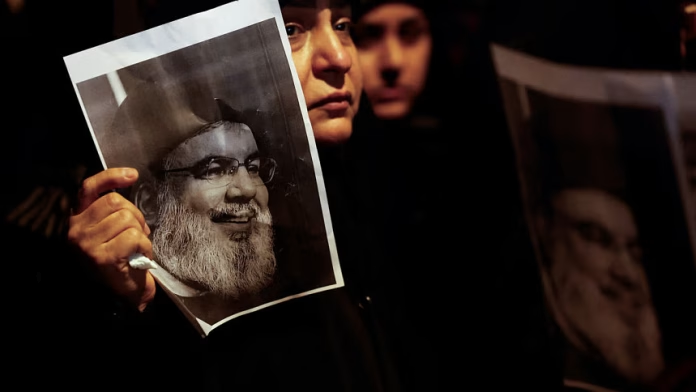The UK government renewed its call for an easing of the situation in the Middle East following the death of Hezbollah leader in an Israeli airstrike.
The death of the Hezbollah leader Hassan Nasrallah in the Friday night strike on Beirut, who had been the group’s leader since 1992, has heightened fears the conflict between Israel and the Iranian-backed group might turn into a full-blown regional war involving key allies of both sides in the standoff.
Following news of his death, British officials echoed a message from the UN foreign minister earlier this week urging a ceasefire and a political solution to the conflict. David Lammy told the UN Security Council on Wednesday that “a full-blown war is not in the interests of the Israeli or Lebanese people.”
A diplomatic solution is the only way to restore security and stability for the Lebanese and Israeli people, Lammy said on Friday.
However, the easing of the situation seems not to be in sight. In its statement confirming the leader’s death, Hezbollah vowed to “continue the holy war against the enemy and in support of Palestine,” while Iran’s Supreme Leader Ayatollah Ali Khamenei issued his own message saying that regional resistance forces should stand by and support Hezbollah.
Israeli chief of staff Lieutenant General Herzi Halevi said the elimination of the militant leader was “not the end of our toolbox,” suggesting further action was planned.
Still, regional unrest continues to intensify. The Friday strike was followed by more airstrikes on southern Beirut, causing civilians to move north in search of safety. In addition, 50 children lost their lives and that number is expected to rise as the airstrikes continue. The United Nations has reported that 118,000 Lebanese have moved in recent days. Ettie Higgins, UNICEF’s deputy representative in Lebanon, told BBC:
Even the most basic essential services of healthcare and water are now being rapidly, rapidly depleted. There was already a humanitarian crisis in Lebanon given that it’s been hosting over one million refugees from Syria for over a decade, so it’s rapidly escalating into a catastrophe.
Some 5,000 British citizens are in Lebanon. As a result, the UK Foreign Office warned UK citizens to leave Lebanon without delay. The government successfully requested airlines to increase capacity on routes out of Lebanon, and Foreign Office staff in Beirut will support British consulate services.
Depth of Israel’s penetration of Hezbollah
The assassination of the Hezbollah leader at headquarters came just a week after Israel’s deadly bombing of hundreds of explosives-laden pagers and radios. The operation was the culmination of a quick succession of strikes that wiped out half of Hezbollah’s governing council and eliminated its top military commanders.
“This is a massive blow and intelligence failure for Hezbollah. They knew that he was meeting. He was meeting with other commanders. And they just went for him,” Magnus Ranstorp, a veteran Hezbollah expert at the Swedish Defence University.
Sources said Nasrallah became even more cautious than usual after the 17 September pager blasts because of fears that Israel would try to assassinate him. Nasrallah avoided public appearances. He was long vigilant, his movements were restricted and the circle of people he saw was very narrow, according to a source familiar with Nasrallah’s security arrangements. The assassination thus suggests that his group was infiltrated by Israeli informants, sources reported.
Apart from, Hezbollah showed its capacity to quickly replace commanders, and Nasrallah’s cousin Hashem Safieddine, has long been considered as his successor. In this way, the group is set to carry on fighting: before the current exacerbation, it had about 40,000 fighters and an extensive network of tunnels near the border with Israel, according to US and Israeli estimates. The group was one of the most heavily armed unconventional armies in the world, with an estimated US arsenal of 150,000 rockets, missiles and drones.
Israel has struck more that 1,000 Hezbollah targets in recent days. The army claimed to have killed eight of Hezbollah’s nine most senior military commanders this year, mostly last week. Those commanders led units ranging from a rocket division to Radwan’s elite forces. Some 1,500 Hezbollah fighters suffered injuries in pager and walkie-talkie bombings on 17 and 18 September.
